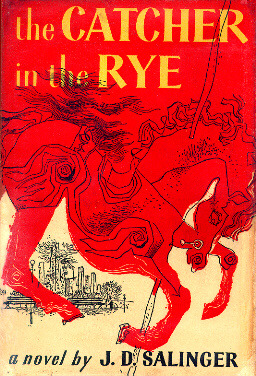 Day 22--22/501
Day 22--22/501General Musings: Here is my new resolution, after I'm done reading the 501 books I am going to divest myself of my library save a few reference books. As a bibliophile my books have taken over my life. I have bookcases in numerous rooms, hundreds if not thousands of books, and a daunting number of books that cry out to be read. I often say I'd like to be a minimalist but I need to stop my consumptive habits of acquiring books--the library is the way to go. Then again maybe I should get a Kindle...
Running Page Count: 5,929
Today's Title (Classic Fiction): Mary Shelley's Frankenstein
Preface: Imagine having the name Frankenstein in 19th century England and then one day everybody is making cracks about reanimated corpses in the family tree--worse than having named your kid Britney or Homer a quarter century ago.
Mary Shelley was the homely child bride (and cousin) of P. B. Shelley [what part of that sentence do you most object to?]. She was also the daughter of writers William Godwin and Mary Wollencraft. One day she, hubby, Polidori, and Byron are sitting around vacationing at Lake Geneva and they decide to entertain themselves by telling scary stories--apparently the jet boat was broken and they couldn't go water skiing. Ironically of all the great writers in her family and among her friends she would make the biggest impression on the public with her Gothic novel.
Frankenstein is very well known but not often read. The monster is not Frankenstein, the creature doesn't mumble incoherently, and the good doctor has no Igor.
The Book: Mary Shelley's Dr. Frankenstein, or The Modern Prometheus opens with an exchange of letters and becomes a narrative told from the point of view of a ship's captain having encountered Victor Frankenstein. Victor is hunting the monster by dogsled, raft, and by foot--he has got a score to settle and if this was Die Hard he would be Bruce Willis. Flashback to school days in Germany and young Victor chooses dissection over intramural hockey. Victor burns the midnight oil and creates a monster--I suspect I'm not spoiling anything here. The monster goes away for self-study (I'm only half joking on this point) and comes back a little anti-social. Victor tries some therapy and then tough love and ends up a few steps short of a successful 12 step program. It is a protracted drama that lacks the urgency of the film version and only Frankenstein's chase after the monster (bookending the main narrative) is truly exciting.
Grade: B
Observations: Shelley is given to the melodramatic, the dialogue seems stilted, the narration pedantic, and the teenage author's take on men is, in my humble masculine opinion, a little off. It is a much different story than the one I knew from popular culture. But it is still a fabulous story.
Segues: There have been movies but my favorite is the 1931 version with Boris Karloff, in one brilliant scene there is an uncanny similarity to the theme of the annunciation in Renaissance painting.
The Bride of Frankenstein is a great film that has nothing to do with the book. Moreover, Young Dr. Frankenstein is a hilarious film that will ruin the book forever for you in exchange for some great laughs.
Tomorrow's Book (Modern Fiction): Kurt Vonnegut's Slaughterhouse Five 23/501




